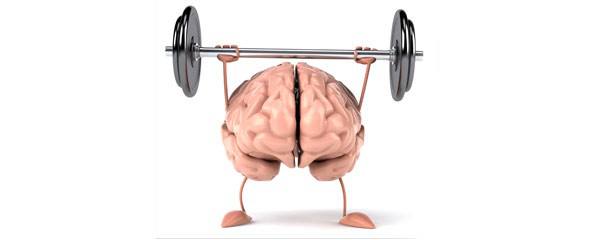Exercise boosts the brain
Exercise improves memory, cognitive function and mood, and can fight progressive brain disease such as Alzheimer’s and Parkinson’s. Todd Sampson, a veterans’ table tennis team and tango dancers help the Brain Foundation highlight these benefits during Brain Awareness Week on Tuesday, March 11 in Martin Place.
The veterans’ team will challenge passersby to a game of brain-boosting table tennis as dancers tango through the crowd, showcasing two great brain health activities.
Todd Sampson says even gentle exercise is beneficial. “I’ve travelled the world talking to neuroscientists and they all agree, if you can only do one thing for your brain, go for a walk.”
“Exercise pumps blood into the brain which helps new cell growth, blood vessels, memory circuits and processing. It can halve the risk of dementia and boosts the hippocampus, where Alzheimer’s can develop. To keep your brain sharp as you age exercise is essential.”
Professor Graham Kerr from the Queensland University of Technology, is researching the benefits of exercise for older people with Parkinson’s and Alzheimer’s.
“The best brain health exercise combines cardio with strategy, coordination and rhythm,” he says. “It’s not just about fitness, but using and improving different parts of the brain.” University of Queensland has recently partnered with Queensland Ballet in a Dance for Parkinson’s program.
Paul Pinkewich, (62) 13 times Australian Table Tennis Champion heads the veterans’ team. “Playing table tennis has kept me sharp,” says Paul who plays twice a week. “It works the parts of the brain for movement, fine motor skills and strategy. You need fast reflexes and to be able to think ahead.”
Tango dancer, Sophia de Lautour, once worked in rehabilitation and is a strong advocate for the dance’s benefits. “Learning tango fires up new neural pathways because it’s a multi-dimensional experience. You’re learning a new language and instrument – your body. The combination of exercise, social interaction and intense focus can help people suffering depression, Alzheimer’s and Parkinson’s.”
Brain-boosting table tennis will be in the amphitheatre 8am – 2pm. Tango dancing 12pm – 12.30pm.
Brain Foundation volunteers also will be handing out free stress ball brains, brain quizzes and information on brain health throughout the day as people dressed as stars juggle brains and encourage passersby to play table tennis.
Media opportunities
Todd Sampson will be in Martin Place 12 – 1.30pm, playing table tennis and talking to media. He will be available for media interviews during Brain Awareness week.
Interviews are also available with:
· Dr Haydn Allbutt – University of Sydney
· Sophia de Lautour – Tango dancer
· Paul Pinkewich – Australian table tennis champion and veterans’ table tennis coach
· Professor Graham Kerr – Queensland University of Technology, Human Movement and Sports Science.
About the Brain Foundation
The Brain Foundation is a registered charity that funds world-class research Australia-wide into neurological disorders, brain disease and brain injuries. Donations are needed to help them expand their research program.
Donations can be make at the event or via their website: http://brainfoundation.org.au
About Brain Awareness Week
Brain Awareness Week is a global campaign to promote the progress and benefits of brain research.
References
- Center for Brain Health: http://www.brainhealth.utdallas.edu/blog_page/study-finds-aerobic-exercise-improves-memory-brain-function-and-physical-fi
- New Scientist: http://www.smh.com.au/lifestyle/diet-and-fitness/how-exercise-revs-brain-power-20131211-2z62n.html
- DANA Foundation: http://www.dana.org/uploadedFiles/The_Dana_Alliances/Staying_Sharp/MemoryAging_2013.pdf
- NPR: http://www.npr.org/blogs/health/2013/11/11/244503589/sweat-your-way-to-a-healthier-brain
- Queensland Ballet: http://www.queenslandballet.com.au/articles/dance-for-parkinsons
- TangoClassses.com: http://www.tangoclasses.com/tangobenefits
(Source: The Brain Foundation)
Dates
Tags
Created by:

 Login
Login














